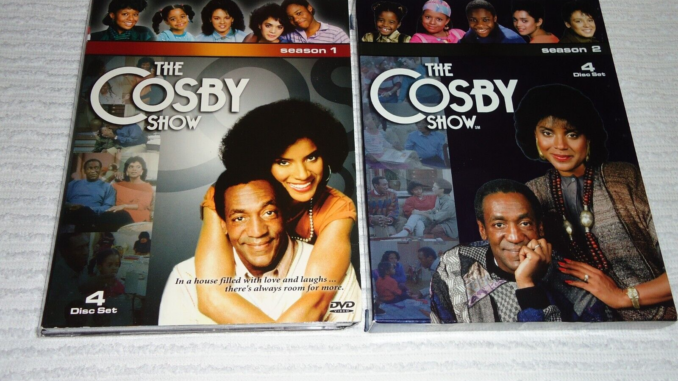
“Decades later, why does The Cosby Show still resonate with audiences around the world?”
Introduction: The Cosby Show made its debut in 1984, and despite the passing of decades, its cultural significance remains strong. While many TV shows of the 1980s have faded into obscurity, The Cosby Show continues to captivate audiences with its universal themes, memorable characters, and positive portrayal of African-American family life. The show was groundbreaking at the time and continues to be a touchstone for discussions about race, family, and representation in the media. But what is it about The Cosby Show that has allowed it to remain so relevant today?
Universal Themes of Family and Love: At its core, The Cosby Show was about family. The Huxtables weren’t just a Black family—they were a typical American family, with relatable problems, joys, and experiences. The issues they faced were ones that could resonate with anyone, from rebellious teenagers to parents trying to balance work and home life. The show was about the highs and lows of family life—managing sibling rivalry, navigating adolescence, dealing with love, loss, and growing up. These themes continue to resonate with audiences today, no matter their background or ethnicity.
What makes The Cosby Show particularly timeless is how it portrays the family as a source of strength. Despite the challenges the Huxtables face, they remain united and supportive of each other. The show suggests that family is not just a unit of people but a support system that helps individuals become the best versions of themselves. This message of unconditional love and familial support resonates just as strongly today as it did when the show first aired.
Cultural Representation and Social Change: One of the most significant reasons The Cosby Show continues to be relevant is its lasting impact on the representation of African-American families in the media. In a time when Black families were often underrepresented or depicted in stereotypical roles, The Cosby Show presented an African-American family that was affluent, successful, and deeply loving. The Huxtables were a representation of the aspirations many African-American families had—and still have—towards upward mobility, education, and strong familial bonds.
The portrayal of Dr. Huxtable and his wife Clair, both professionals who balanced successful careers and parenthood, was groundbreaking. They represented a vision of Black success that challenged existing media stereotypes. The show’s commitment to elevating positive images of African-American life has inspired many subsequent series that focus on successful Black families, such as Black-ish and Dear White People. These shows often credit The Cosby Show with paving the way for their own success.
Educational and Life Lessons: The Cosby Show also served as a source of education for many viewers. The Huxtables’ emphasis on education, personal responsibility, and discipline provided lessons that remain valuable to this day. Episodes often centered around schoolwork, striving for academic excellence, and making good life choices—values that are still important to viewers.
In particular, the show’s portrayal of Theo’s academic struggles and his relationship with his parents, especially Dr. Huxtable, offered a sensitive and realistic look at the challenges many teenagers face in school. Theo’s journey, which involved confronting his own insecurities and learning how to navigate his difficulties, is a story that resonates with viewers today, as academic pressures and the quest for self-identity continue to be universal themes for young people.
A Show for the Whole Family: What made The Cosby Show unique was its ability to appeal to audiences of all ages. It was a family show in every sense of the word, offering something for everyone. Parents saw in the Huxtables a reflection of their own aspirations for their families, while children connected with the youthful antics of the kids. This broad appeal made the show a cross-generational favorite and ensured that it would continue to resonate for years after its original run.
Conclusion: The legacy of The Cosby Show is as enduring as the family values it portrayed. Its universal themes of love, support, and personal growth, combined with its groundbreaking representation of African-American life, make it as relevant today as it was when it first aired. The show not only influenced TV shows that came after it but continues to serve as a cultural touchstone for how families are represented in the media. Despite the controversies surrounding Bill Cosby’s personal life, the impact of The Cosby Show remains undeniable, and its lessons continue to resonate with viewers across generations.
